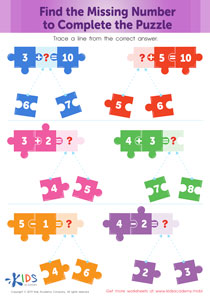Extra Challenge Addition Worksheets for Ages 3-9
24 filtered results
-
From - To
Boost your child's math skills with our engaging "Extra Challenge Addition Worksheets for Ages 3-9" from Kids Academy! Designed for young learners, these worksheets offer a variety of fun and challenging addition problems that foster critical thinking and number mastery. Ideal for both the classroom and home, our printable worksheets cater to different difficulty levels, ensuring that each child stays motivated and confident. With colorful illustrations and diverse activities, kids will enjoy learning and practicing addition. Perfect for parents and educators seeking reliable, high-quality resources to support early math development in children aged 3-9.
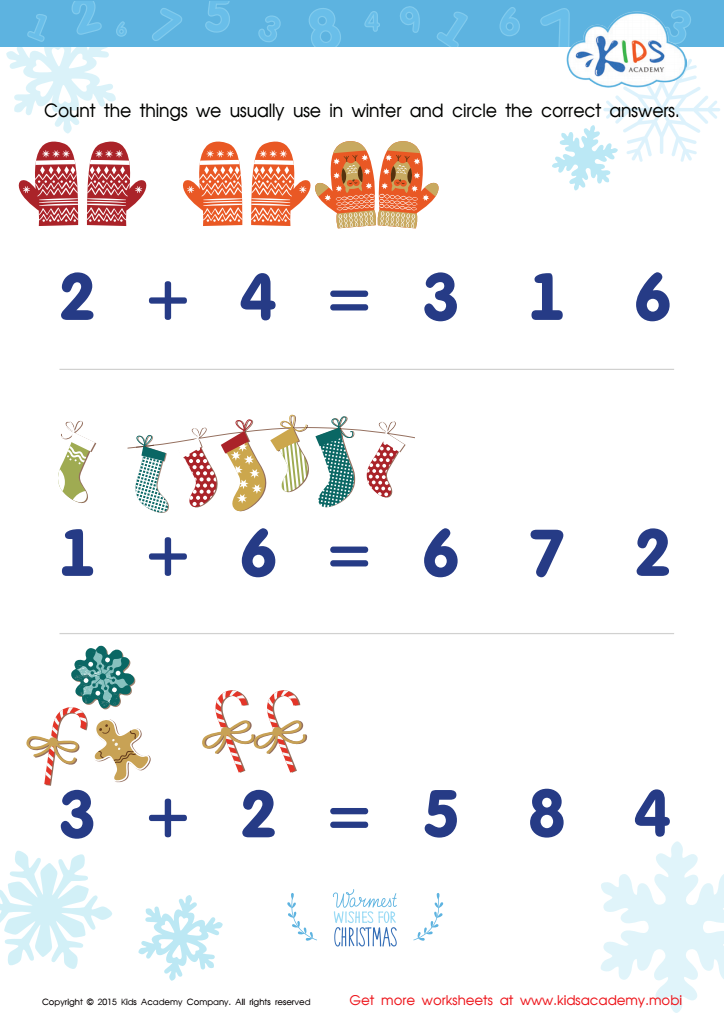

Count Winter Things Worksheet
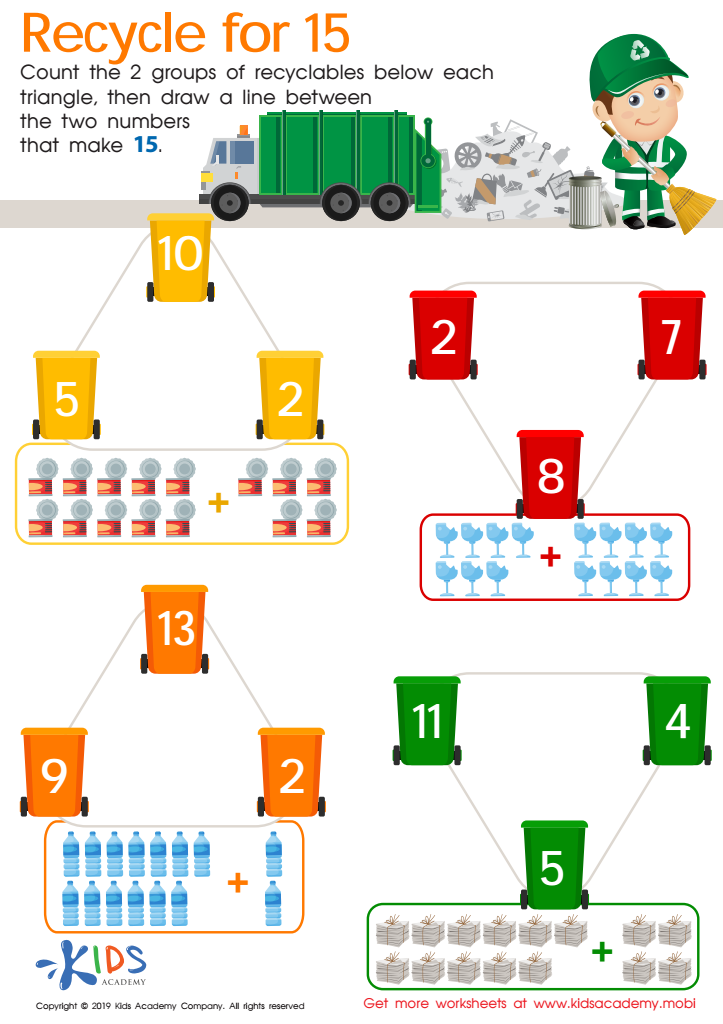

Recycle for 15 Worksheet
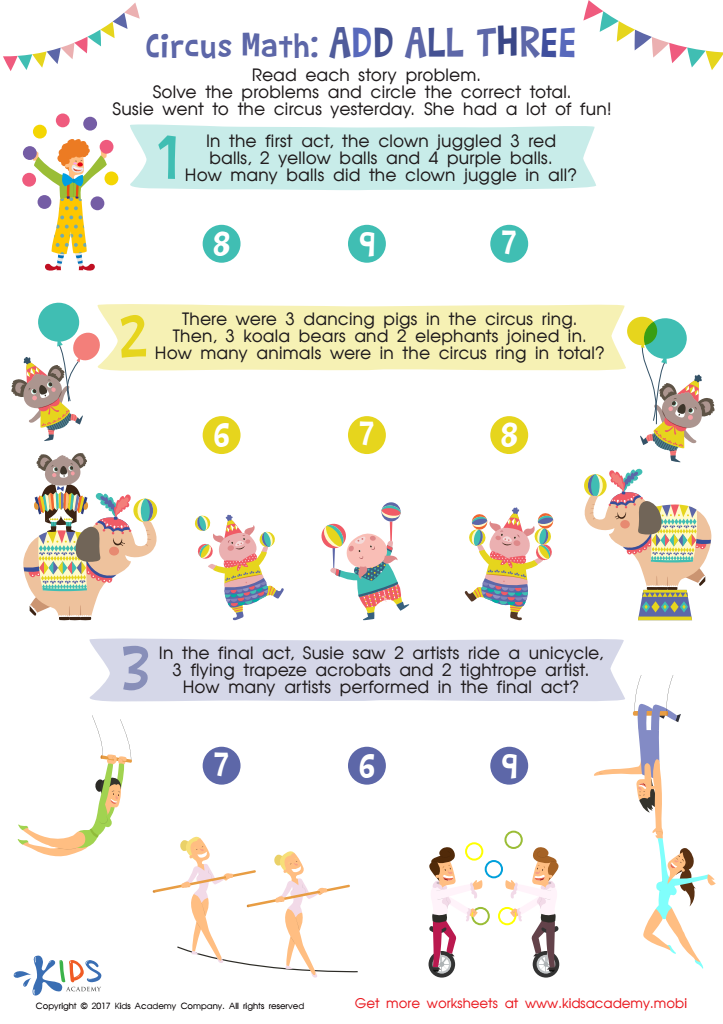

Circus Math Printable
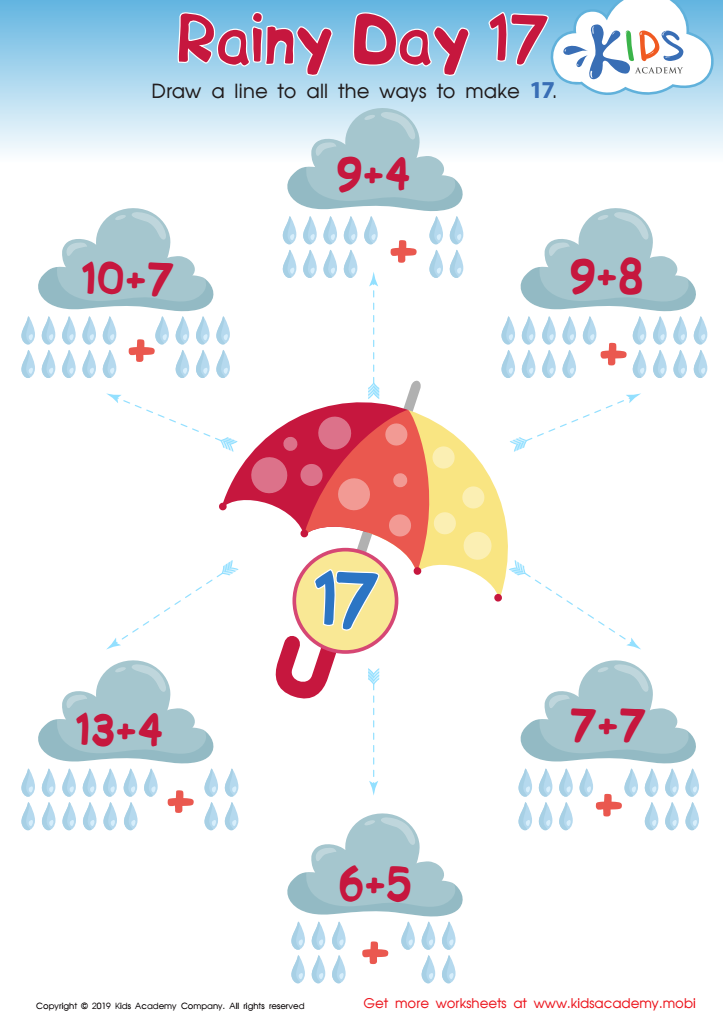

Rainy Day 17 Worksheet
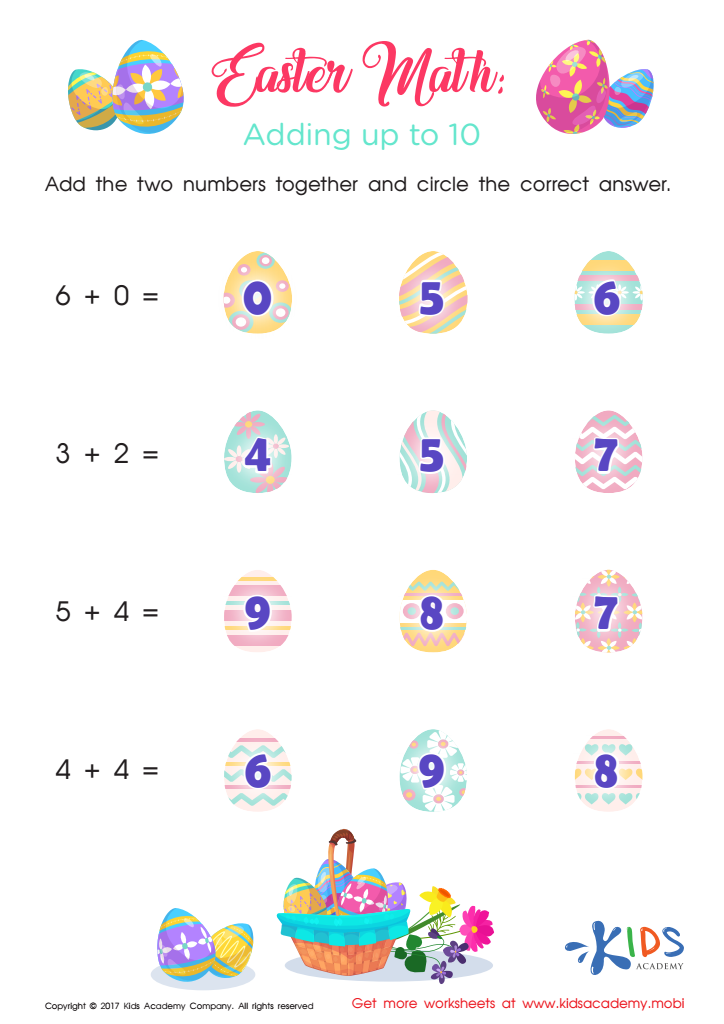

Addition Up To 10 Worksheet
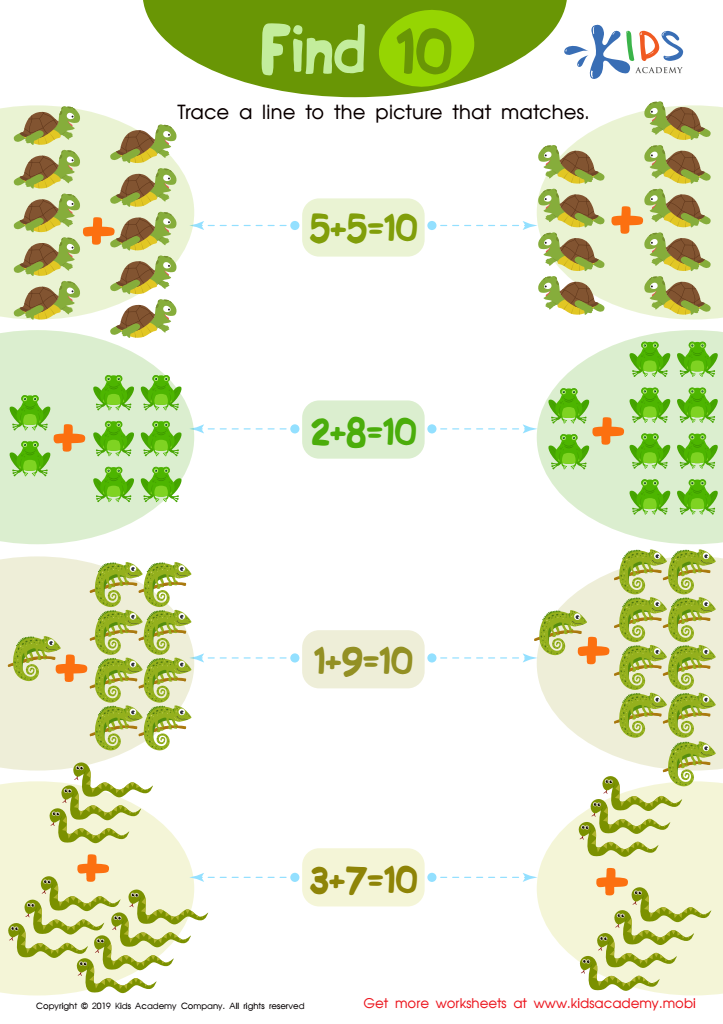

Find 10 Worksheet
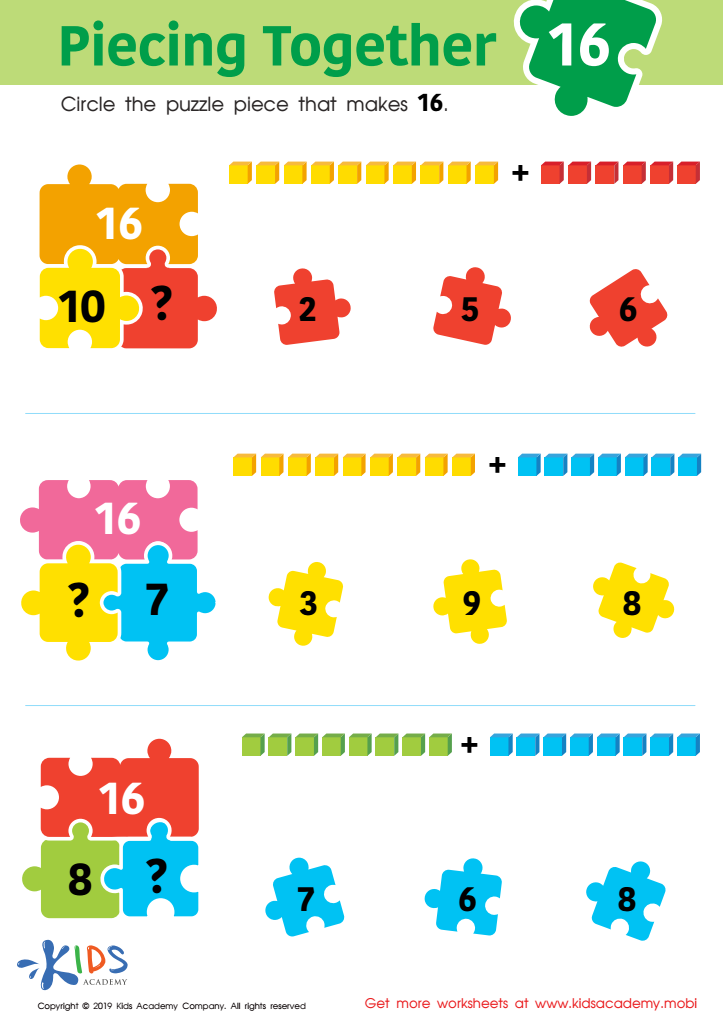

Piecing Together 16 Worksheet
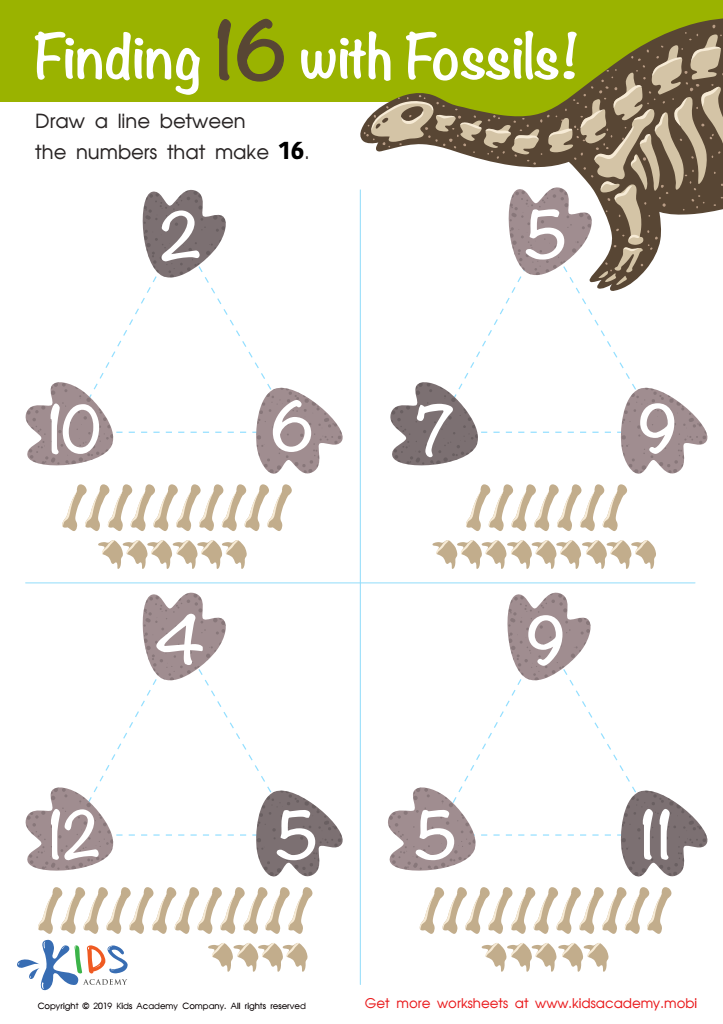

Finding 16 With Fossils Worksheet
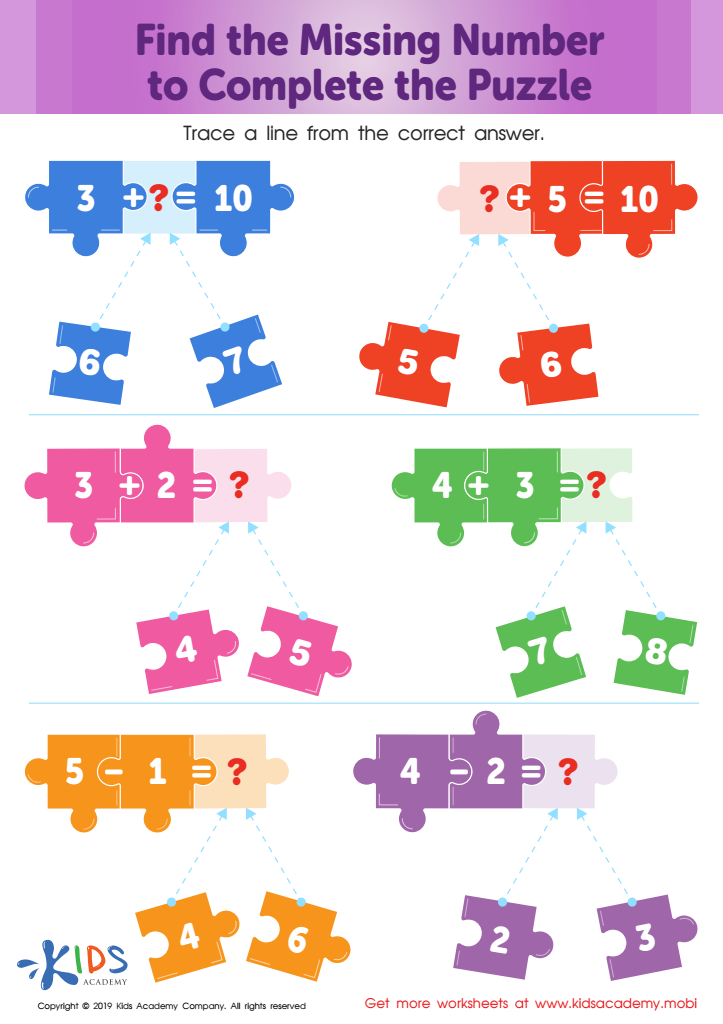

Find the Missing Number to Complete the Puzzle Worksheet
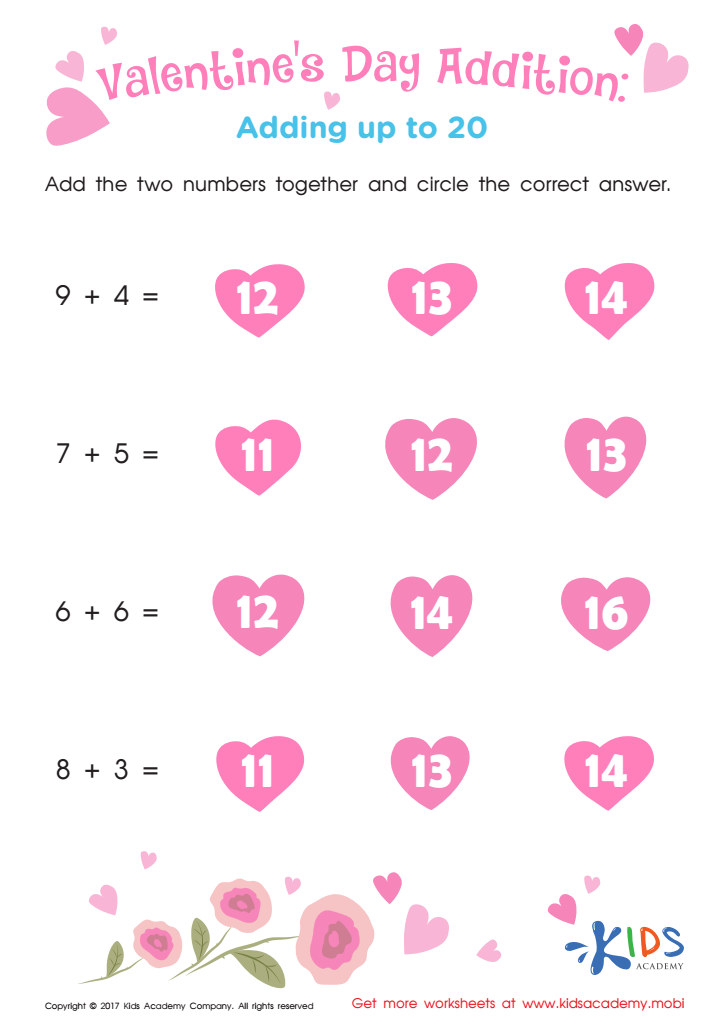

Valentine's Day Addition Worksheet
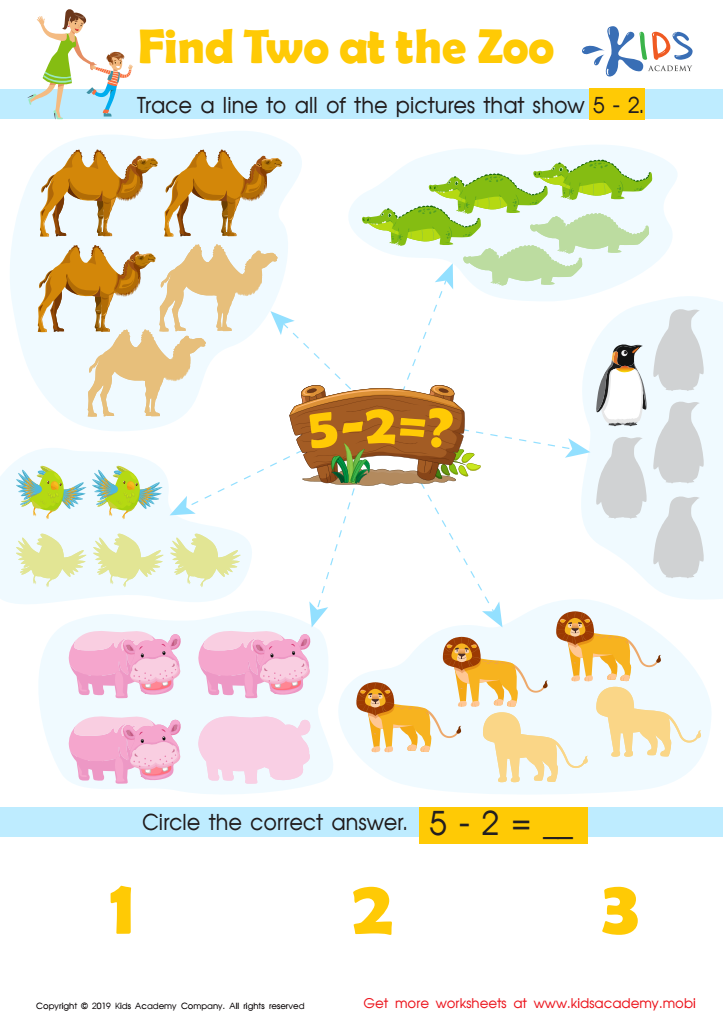

Find Two at the Zoo Worksheet
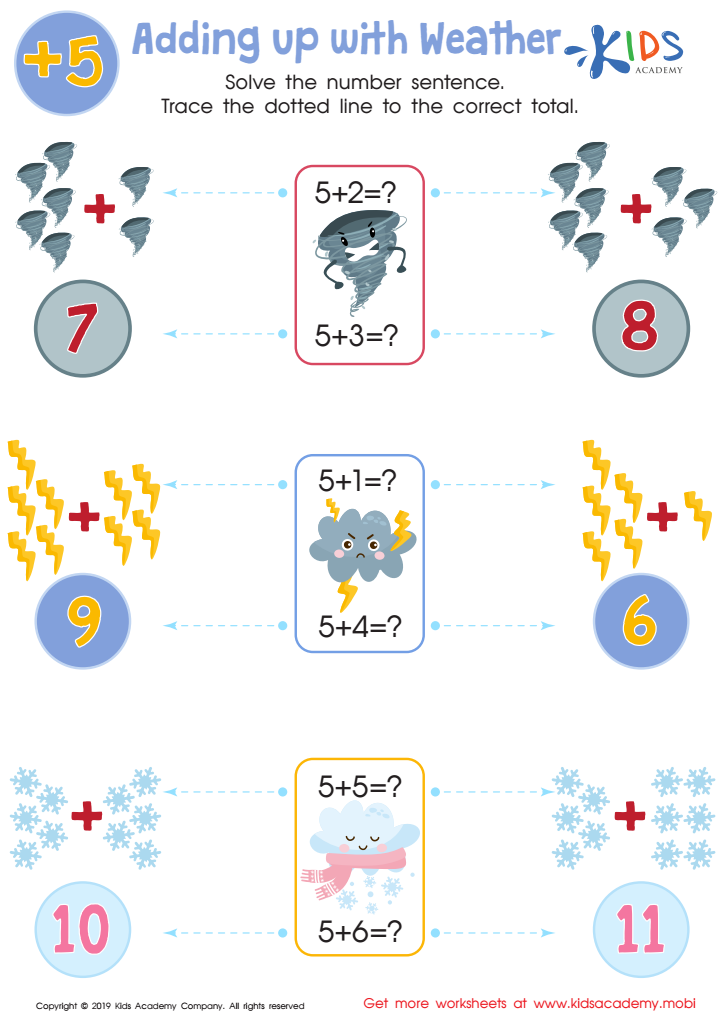

Adding up With Water Worksheet
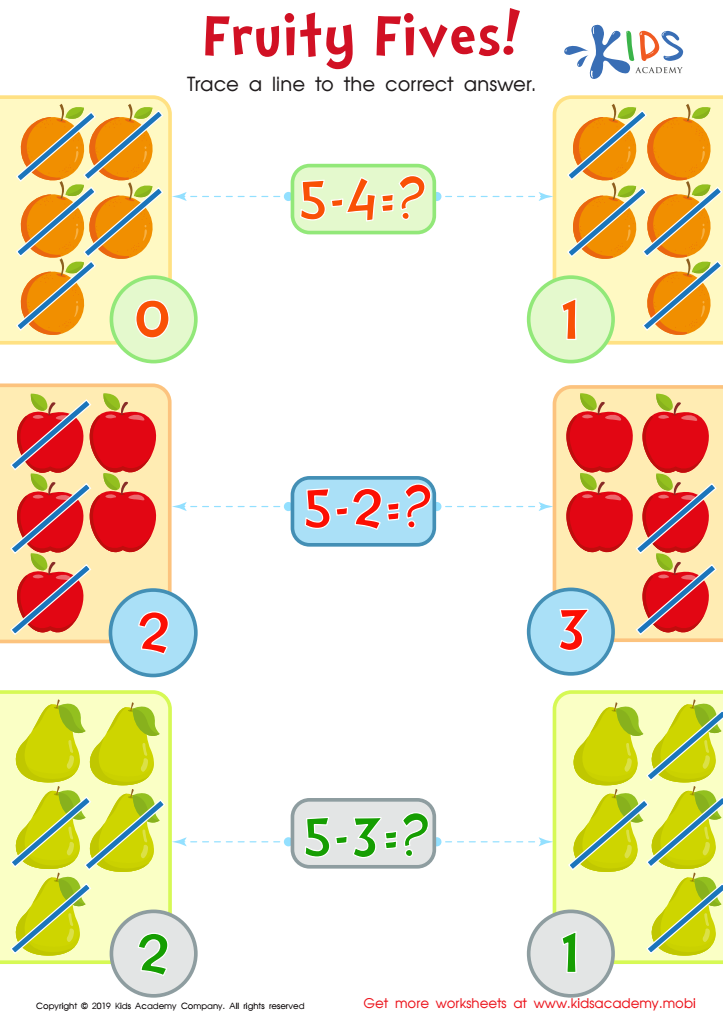

Fruity Fives! Worksheet
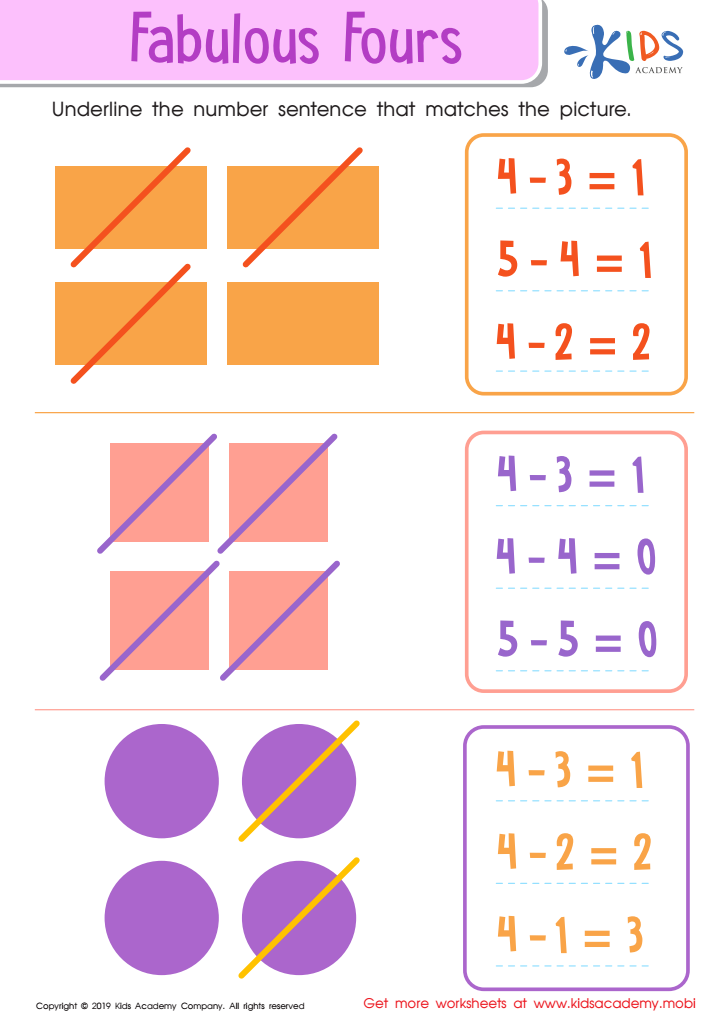

Fabulous Fours Worksheet
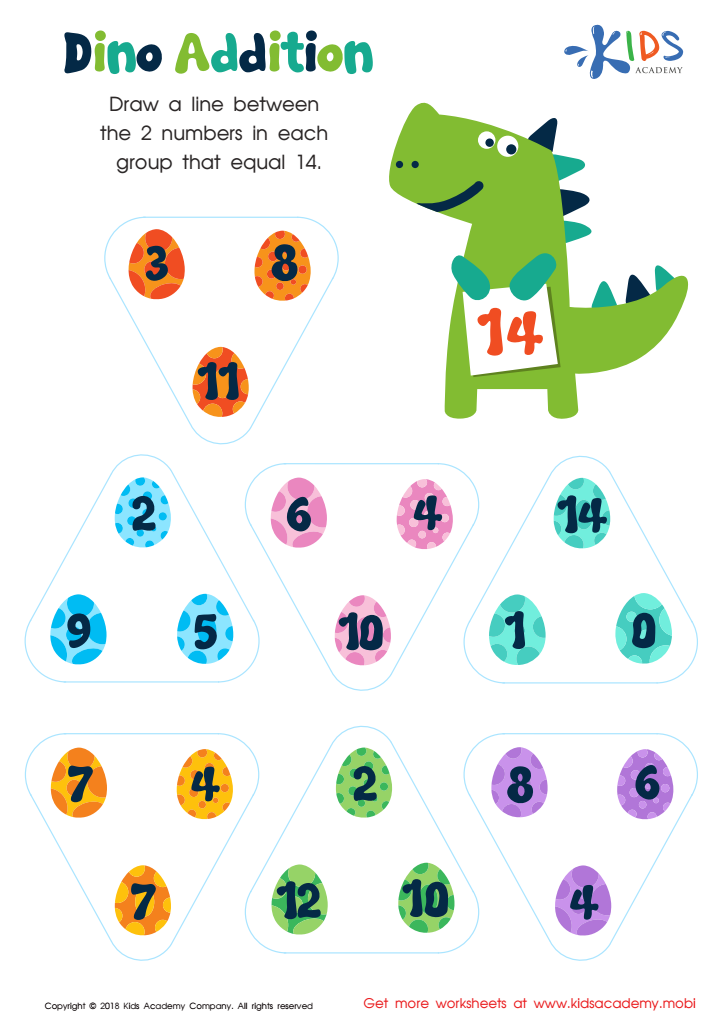

Dino Addition Worksheet
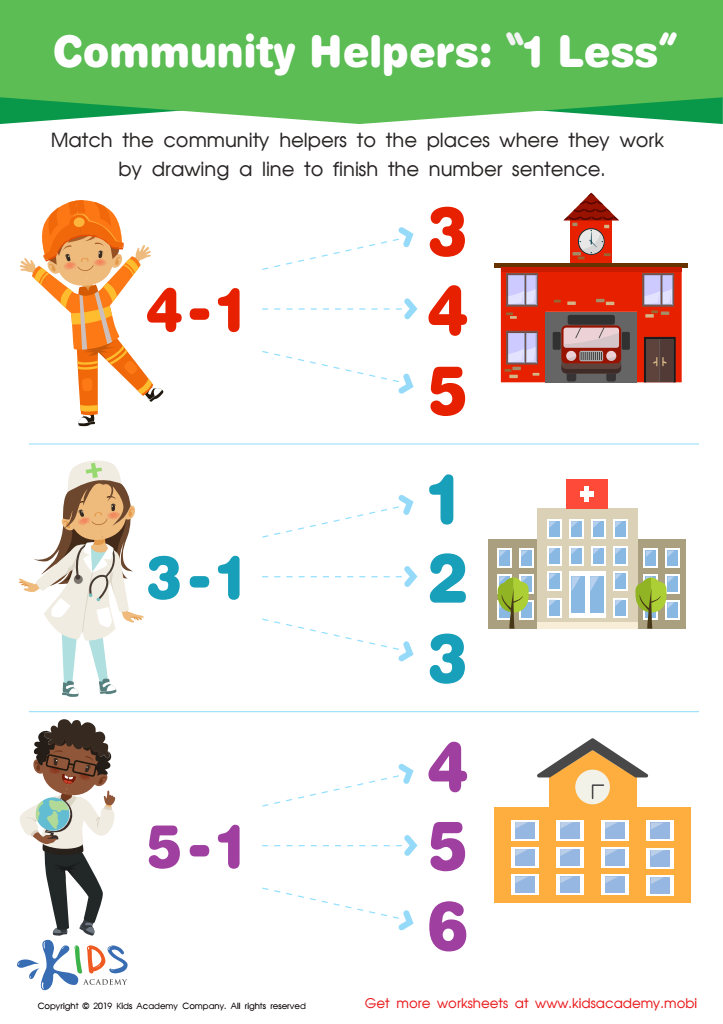

Community Helpers: 1 less Worksheet
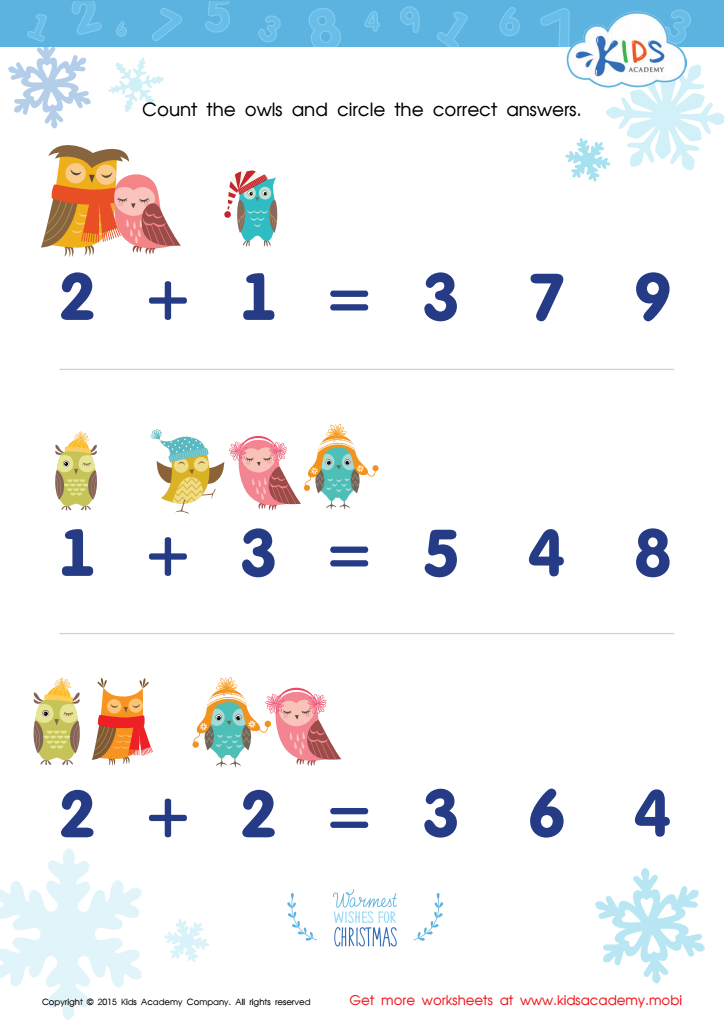

Count Little Owls Worksheet
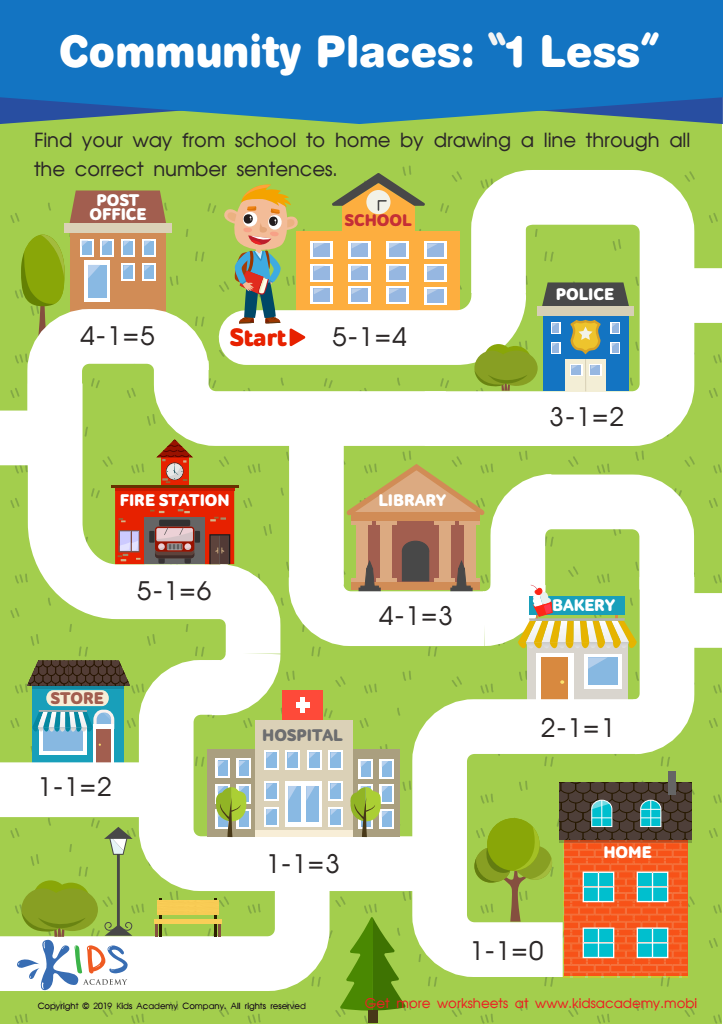

Community Places: 1 Less Worksheet
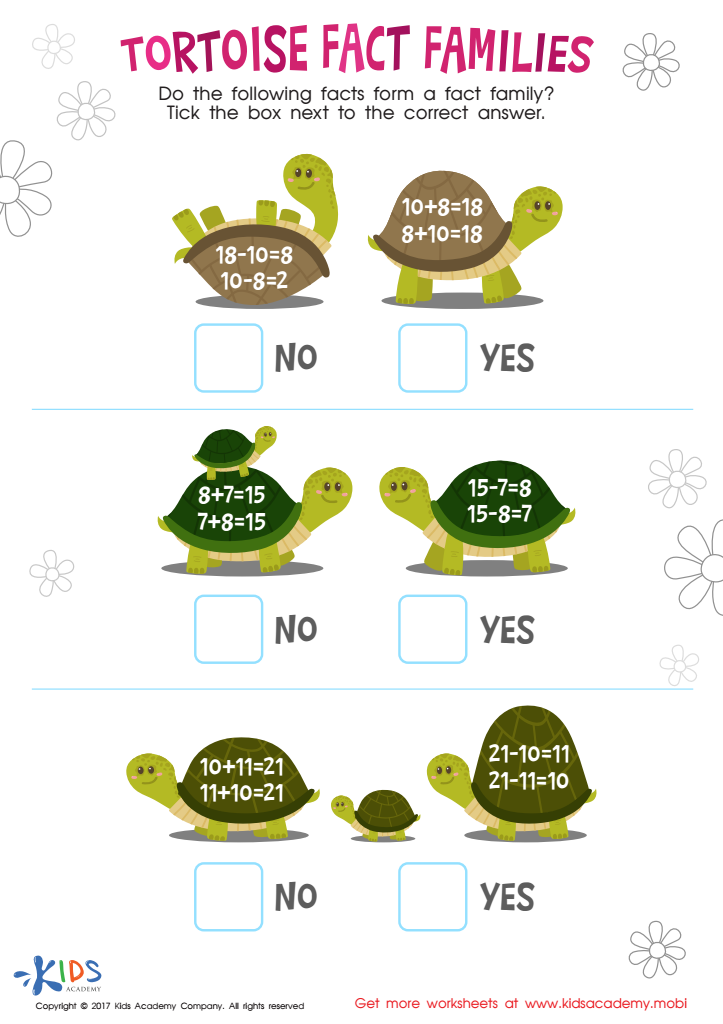

Tortoise Fact Families Printable
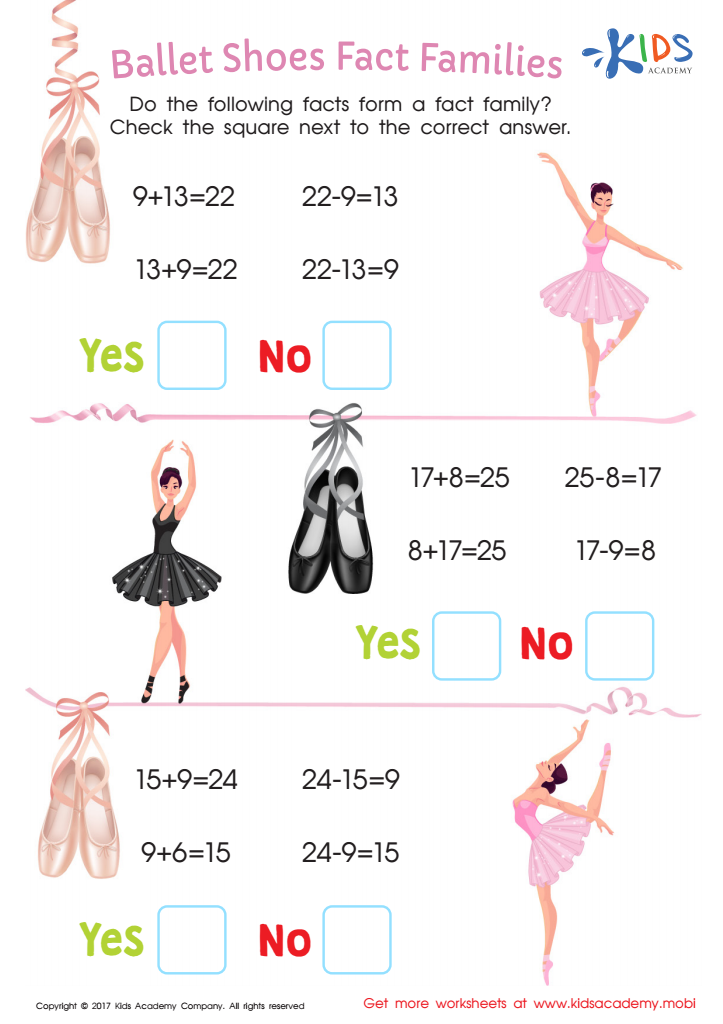

Ballet Shoes Fact Family Printable
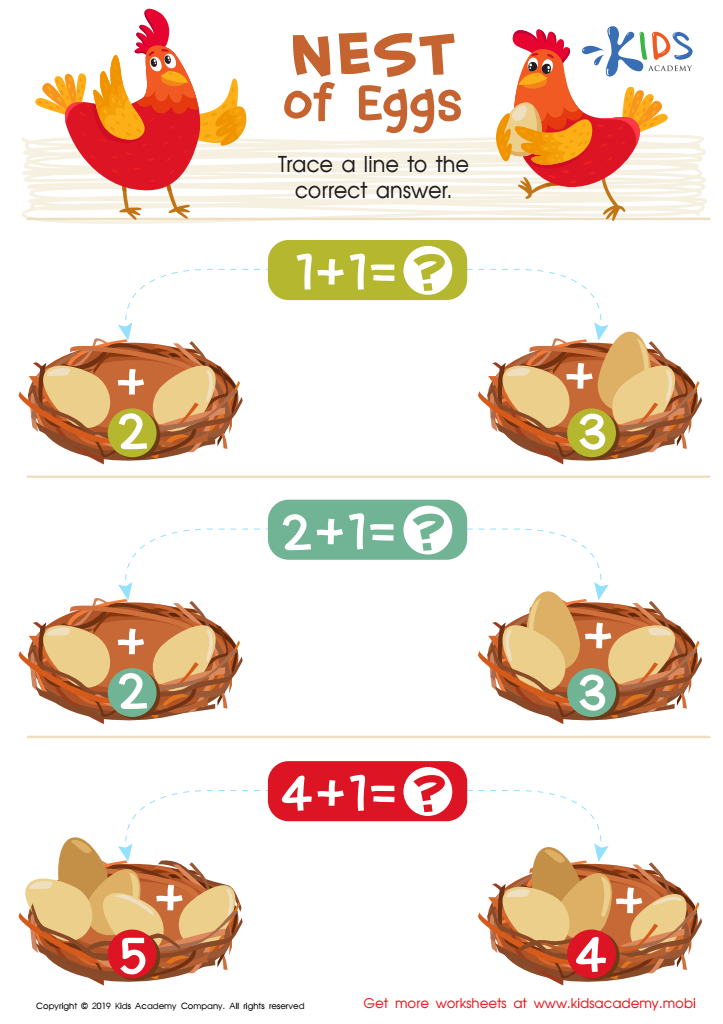

Nest of Eggs Worksheet
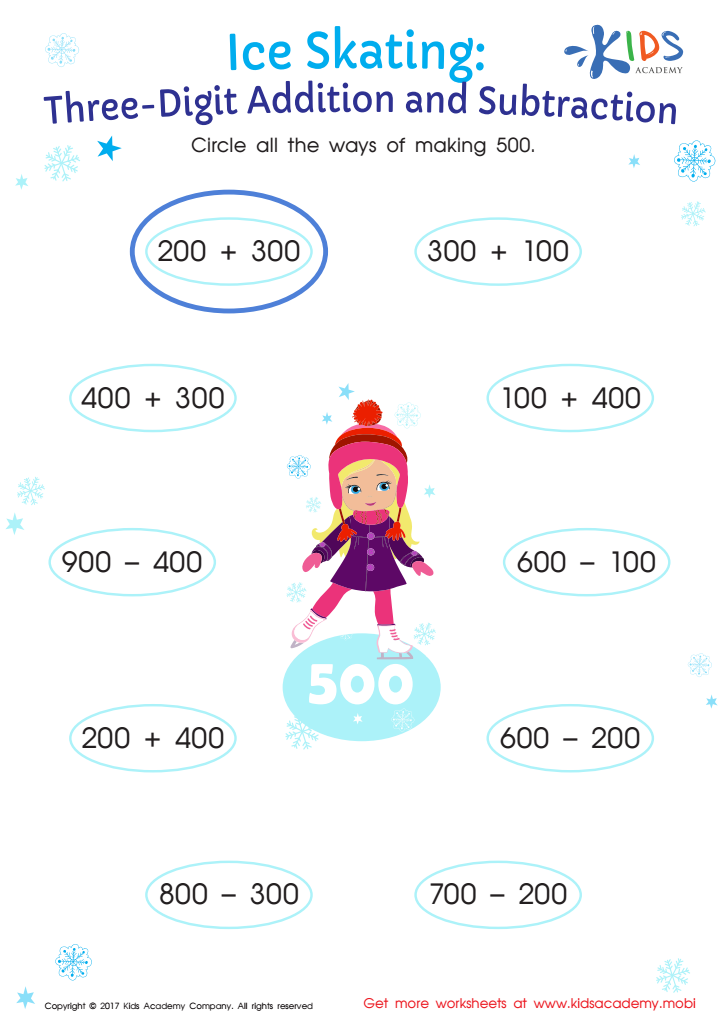

Three Digit Addition and Subtraction Worksheet
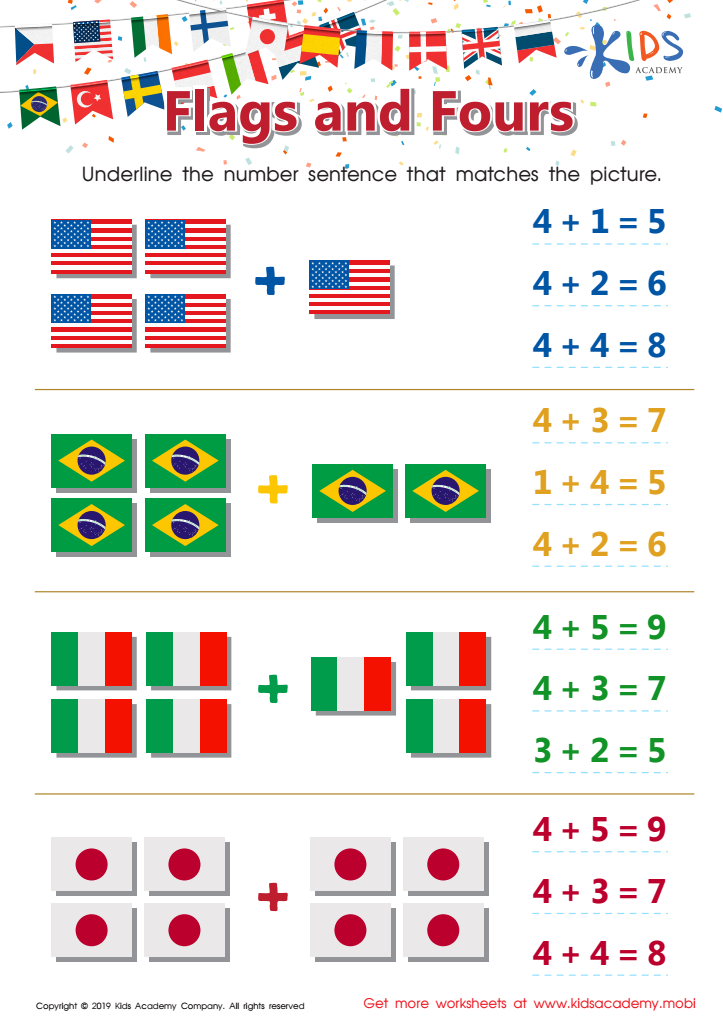

Flags and Fours Worksheet
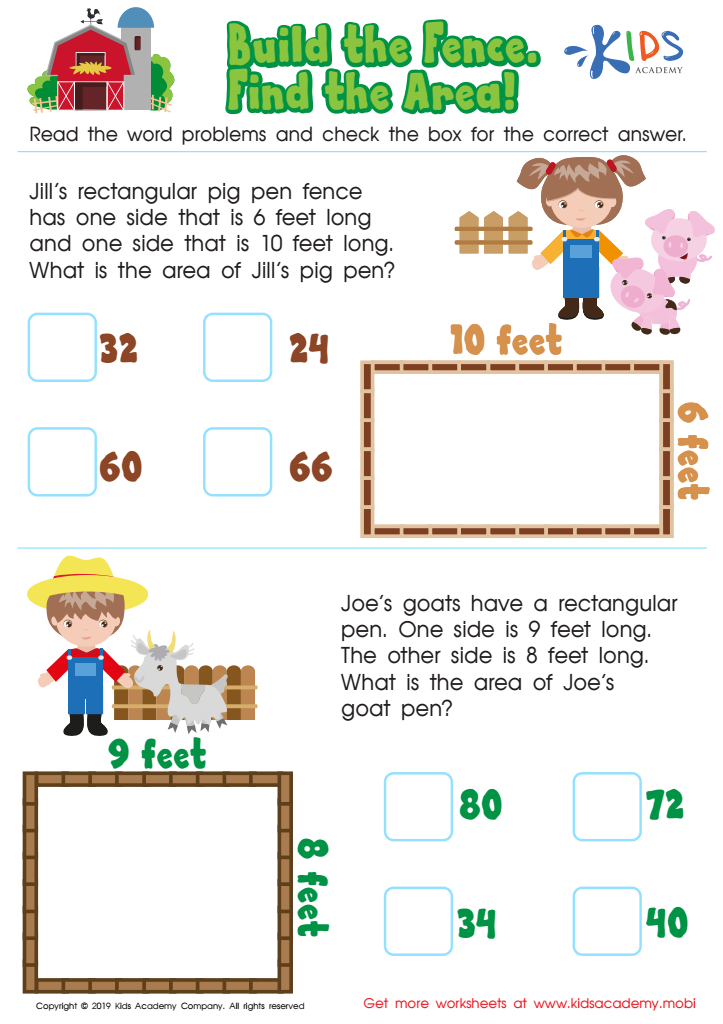

Build the Fence, Find the Area Worksheet
Extra Challenge Addition activities are vital for children ages 3-9 because they lay the foundation for essential math skills. Early exposure to these activities helps young learners develop a strong sense of numbers and mathematical concepts. Engaging in extra challenges, specifically in addition, stimulates critical thinking and problem-solving abilities. This encourages kids to approach math with a positive attitude, reducing anxiety and fostering a growth mindset.
For young minds, mastering basic addition paves the way for more complex mathematical operations. It enhances their memory, concentration, and reinforces the concept of counting and number relationships. When children tackle addition problems, they also practice perseverance and resilience as they face and overcome difficulty levels progressively.
Moreover, extra challenge addition activities can be designed as fun and interactive games, making learning enjoyable and increasing children's willingness to participate. This form of active engagement nurtures a child's creativity and love for learning. Parents and teachers who prioritize these activities are contributing to a child's overall cognitive development and academic success.
In conclusion, extra challenge addition activities are not just about improving math skills but about instilling lifelong traits such as logical reasoning, confidence, and enthusiasm towards learning. Thus, parents and teachers play a pivotal role in guiding children through these foundational math activities.
 Assign to My Students
Assign to My Students














